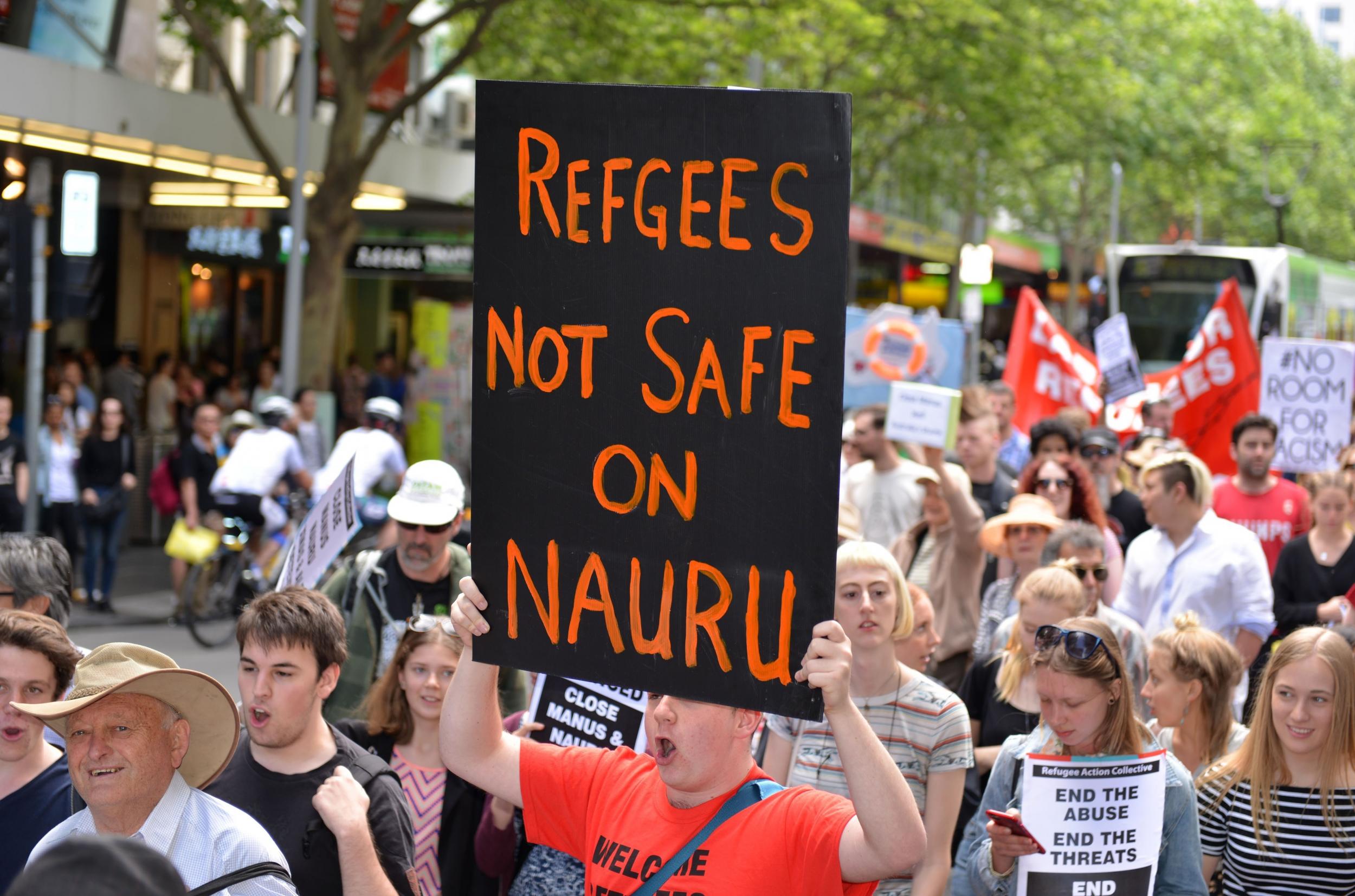Australian immigration minister blames refugee advocates for Somali asylum seeker setting herself on fire
Peter Dutton accuses refugee advocates of giving those fleeing war or persecution false hope they will be settled

Australia's immigration minister has blamed refugee advocates for “encouraging” asylum seekers to self-harm in the hope of getting to Australia after a woman set herself on fire at a detention camp on the island of Nauru.
A 21-year-old Somali woman, identified only by her first name, Hadon, was reported to be in critical condition after she set herself alight, in the second such incident within a week.
It came just days after a 23-year-old Iranian man set himself on fire in protest at his treatment on Nauru, later dying of his injuries.
Immigration Minister Peter Dutton admitted there had been a rise in cases of self-harm in the camps but said some advocates were “encouraging some of these people to behave in a certain way”.
"The recent behaviours in Nauru are not protests against living conditions" he told a news conference in Canberra.
"They aren't protests against health care, they aren't protests against the lack of financial support."
Mr Dutton also accused refugee advocates of giving the asylum seekers false hope they would one day be settled in Australia.
Moments before setting himself on fire, the Iranian – identified only as Omid – was reported to have told UN officials visiting the camp: “This is how tired we are, this action will prove how exhausted we are. I cannot take it any more,”
The Somali woman has been transferred to Australia for treatment, according to local officials.
It comes after the United Nations renewed its criticism of Australia’s immigration policy, which sends asylum seekers trying to reach the country to processing camps on Nauru and Manus Island.
The camps hold 500 people, mainly asylum seekers fleeing violence in the Middle East, Afghanistan and South Asia, who have been told they will never be processed in Australia.
The office of the United Nations High Commissioner for Refugees said such incidents in the camps were a result of Australia’s hardline offshore detention policies.
"These people have already been through a great deal, many have fled war and persecution, some have already suffered trauma," the office said in a statement.
"The consensus among medical experts is that conditions of detention and offshore processing do immense damage to physical and mental health."
The Refugee Action Coalition in Sydney said in a statement that the new hospital on Nauru was not functioning and basic medical supplies were not available to treat refugees.
“Peter Dutton does not have a shred of evidence that advocates encourage refugees to self-harm,” it said.
“The government itself is playing a dangerous game with the lives of asylum seekers and refugees – in Australia and on Nauru. Offshore processing and the government’s mismanagement of the situation is costing lives.”
On Tuesday, a boat believed to be carrying asylum seekers from Sri Lanka was intercepted near the remote Australian Indian Ocean Territory of the Cocos Islands, according to the the Australian Broadcasting Corporation.
A spokeswoman for Mr Dutton’s office refused to confirm or deny such a vessel had been intercepted, but if it is confirmed to be carrying asylum seekers, it would be the first such vessel to have arrived in Australian territory in almost two years.
It comes after Australia’s immigration policy suffered a major blow when Papua New Guinea’s supreme court ruled that the detention of more than 900 current and former refugees was illegal.
Subscribe to Independent Premium to bookmark this article
Want to bookmark your favourite articles and stories to read or reference later? Start your Independent Premium subscription today.

Join our commenting forum
Join thought-provoking conversations, follow other Independent readers and see their replies